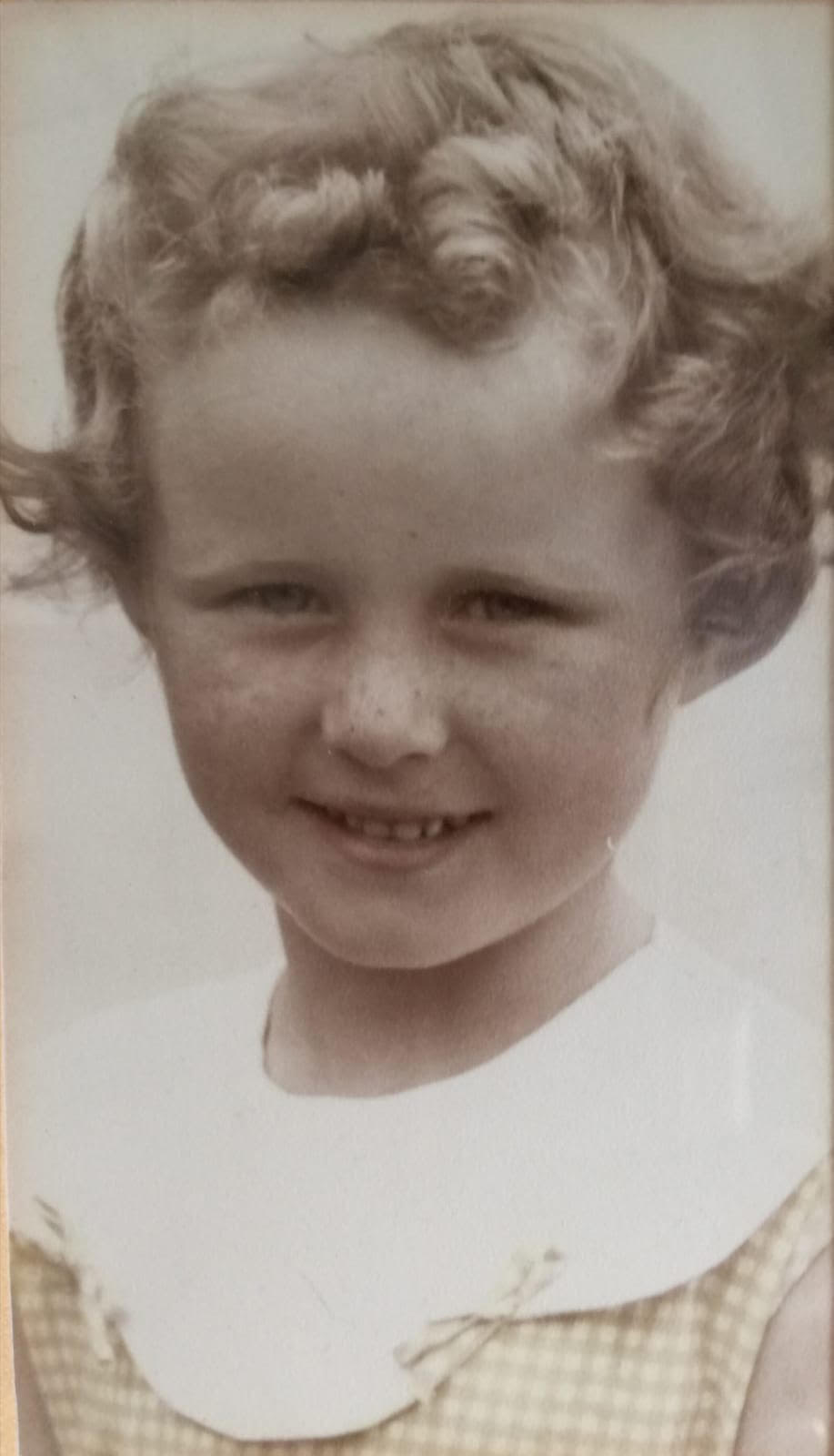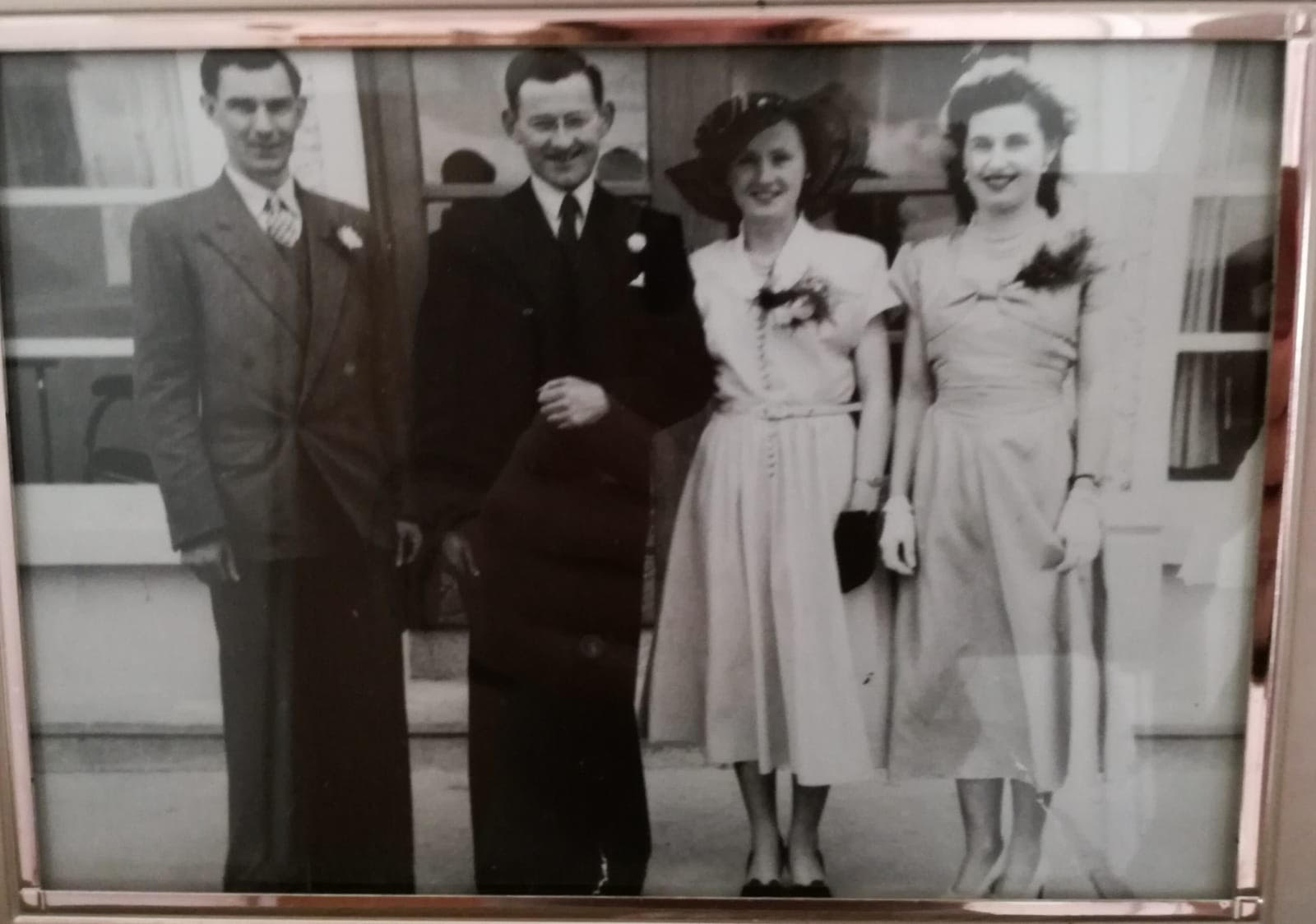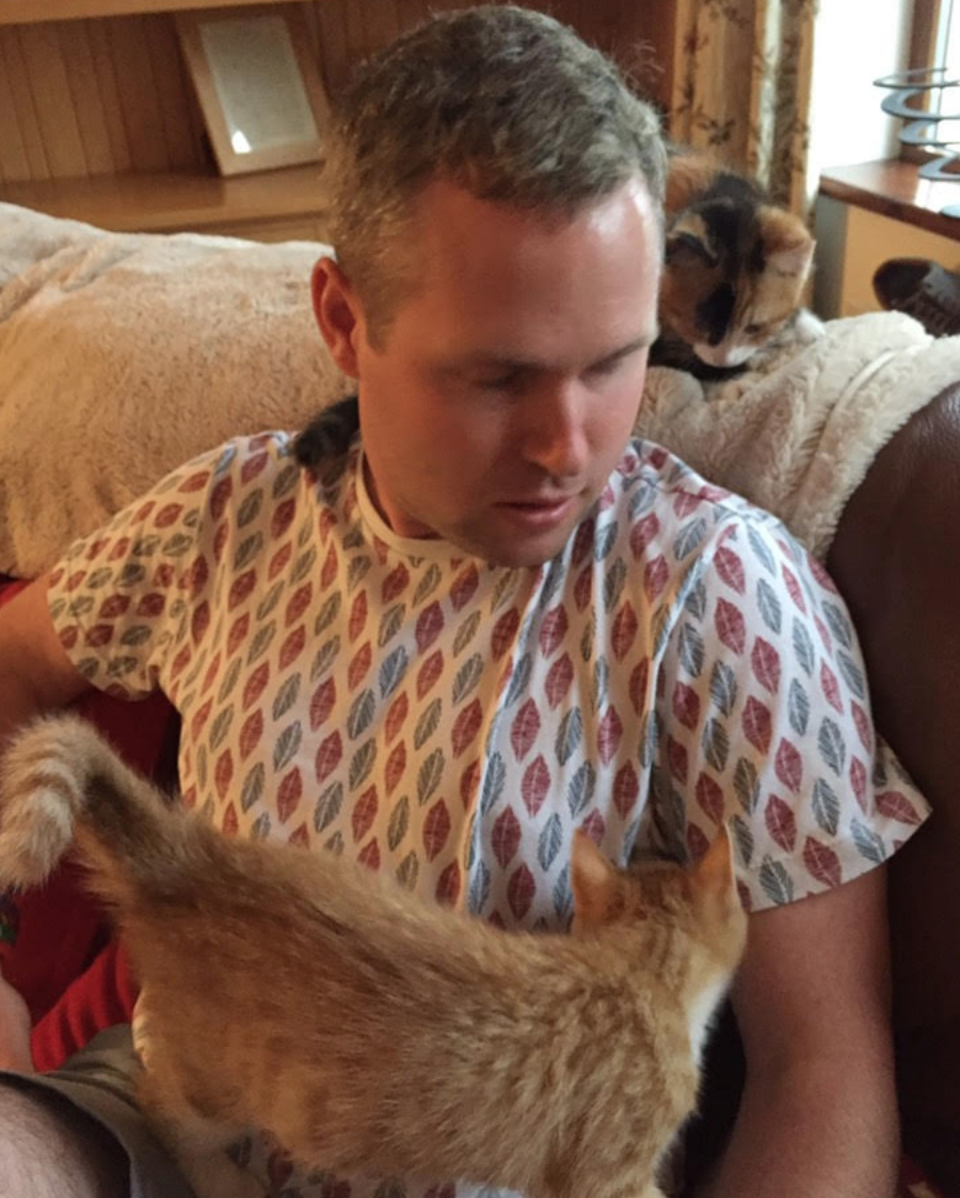Your parents won't be around forever - so what is is about their lives you are curious to know?
During the pandemic, our family of five were faced with the rather scary prospect of three of us contracting coronavirus at different times, including my mum.
There was a period where it became really hairy. Zapped of any energy and struggling to move, my sister and I exchanged messages on what to do; whether we should call on our aunt - an ICU nurse - to see if she should be admitted to hospital. She has since made a full recovery, for which we're all unspeakably thankful.
But it in those darker moments, your mind turns to the fact that your parents will one day die. So what questions would you regret not asking?
I sent each of them the following questions, knowing they tell me only what they are comfortable with. Anything written below is done with the strict understanding that it will be published and any names anonymised:
- What are your strongest memories of childhood?
- When were you most scared?
- Who inspires you?
- What is your biggest regret?
- What memory of your children best encapsulates their personalities?
- What was your best trip?
- What would you like to ask me?
Due to the unending love of parents, there are things written that are unfailingly lovely about me and my siblings. It involved turning off the self-effacement filter innate in people and compliments are not included to big myself up, but to give an accurate reflection of their feelings. Any references to my brother will likely discuss his learning difficulties, just in case anything seems out of place.
It would be amazing if these initial thoughts of one woman could prompt you, the reader, to do the same and get insights that you didn't have before. It is an emotional experience, and we would be happy to recount anything you find that you are happy to be out there.
Part one of two is my mum, Marie Bradley. She has had a pretty remarkable life - dropping out of school, air hostessing with Aer Lingus and going on to retrain as a psychotherapist, which is something that fills us all with great pride.
Take it away, Ma...
"I appreciate you asking me and will have time to give it some thought. I don't know that my thoughts will be useful advice though. Perhaps what parents try to do implicitly is to pass on what they have taken that helped them, like their own experiences of being parented, and leave out or correct the bad. That often doesn't work and we can pass on things that are so woven into us that we don’t know we’re doing that, but as I often tell myself (and clients), good enough is good enough – perfect doesn’t exist.
CB: What are your strongest memories of childhood?
 Marie Bradley
Marie BradleyMB: I often felt ashamed of our smelly, overcrowded home as a child but friends who lived in shiny polished homes seemed not to mind - but it was important that my children had a home where they felt happy bringing friends and did not worry that their friends would see that shame. I know now that mum was the sole parent, did not get much sleep, attention and leisure and was exhausted but I always knew that she loved her children as if nothing else mattered.
When we were young, we would be hugged and kissed, but as we grew something prevented her doing that which I think has made me less tactile and I regret that. That my closest sibling was probably on the autistic spectrum and kept me at arm’s length added to that. If I am not good myself now, at outward displays of love but I hope you know how precious you are.
In primary school, I was a 'good' girl. I was happy but afraid of the nuns and would tell them I wanted to be a nun to please them and keep them from turning (cows). I had lots of friends, was averagely intelligent, but our home had literally no books. I used to love getting off the bus in Park Street on mobile library days and remember reading all the Molesworth books.
Reading about this 1930s public school world could not have contrasted more with mine, but they were funny, and I enjoyed leaving the noisy atmosphere at home and escaping. I can’t remember where I would have gone to read though, I always shared one of the three bedrooms and often there were no bulbs in the upstairs lights so reading and homework were not easy or encouraged. Was mum saving money, or was it one of her eccentricities? For example, we didn't have a fridge because she didn't like the cold!

Looking back, it was formative 'failing' the 11 Plus and, although I didn’t realise, I remained marked as second best. I went to secondary school, which was designed for children who were not expected to excel, but I loved it and had loads of friends. I remember being told I was the nicest and best-looking girl in the fifth year, (but he probably just fancied me) - my memorable achievement!
I did no work, no-one chased me and the most motivated (or more likely those with motivated and less busy parents), could fly as high at secretarial school or nursing for girls and a whole set of trades and manual work for boys. We knew our gender roles, structures around us did not allow for rebellion and of course, we were Catholics who had been brought up to conform.
Anyway, I left school at 16 because my best friend was emigrating to Oz and I could not bear to stay without her and no-one fought to make me stay. Mum had been a scholarship student with promise and it was only when she was unwell and unguarded later did I understand how disappointed she was that it had led nowhere, so she did not value education for its own sake.
That was something that got in my way until I did my first university module at 53 and got the comment, ‘first class’ on an essay I had worked really hard on. Finally, I was told I was capable. Education gives so much more than a job. The expectations of others are the mirror through which you see yourself and for years I did not put myself forward in work or education until those two words, ‘first class' changed everything.
CB: What story or memory from your children best encapsulates their personality?
MB: My children have taught me so much. I remember you running ahead of me with your little straight back to playgroup and I was astonished at how much you took in, (telling me 'compact and bijou' from a TV ad, at 2 years old, when you saw the Building Society sign that you were not supposed to be able to read).
Attention was taken away from you as [my brother] grew and I perhaps expected you to grow up too quickly. You were always the one who let me know when I was behaving badly and that is great credit to you. I can see you are moving towards contentment and hope you will find your own life. Anyone who meets you is impressed and that makes me proud. I am so proud of the young man you are, not only for your intelligence and humour but also for your sense of fairness.
I often worry that your kindness leaves you quite sensitive. It is so easy to blame and attack others in defence, but you do not do that. It can take years of therapy to achieve that! I loved watching you all grow up and took particular delight in your achievements. I remember [schoolfriend]'s mum saying outside Year 2 “Ciaran can do his 100 times tables" and Mrs Hands used to choose you to read to the class. More importantly, you had loads of friends and that I knew was the most important thing.
I hope [the divorce of my parents] has not been too distressing. I am so much better now and feel the future will be good and my family are central to that future. Really what I cherish most is my family and it will be incredibly hard to leave the home that carries countless memories as if in cine film in my thoughts.
CB: What is your biggest regret?
My biggest regret probably was not knowing that I was capable of learning. That 11 Plus is life-defining and I hope they do not bring it back. Maybe bigger than that is that I did not have a present father, but it has taken years to realise that this has changed how my family is and the kind of attachments we make. Parents are the world around which children form, and our environment was not ideal. I hope yours was better but, as I said, nothing is perfect.
CB: When were you most scared?
MB: I grew up with a real terror of nuclear bombs and truly believed I would not live long. Now I hear people all the time with the same fear but about different things and want to say, ‘do what you can but live as if you will be 100 and expect a good future.’ Hope is what helps you find exciting and interesting endeavours.
Annihilation fear might be one of those unintended things that come from a basic insecurity of not having a father who keeps you safe and loved and that life is predictable. Later in life, I feared for [my brother's] future.
He will always need his family and the care of others but he has a settled, happy life. We all have fears, some more real than others and we get our ability to weather things from that general sense that the world is fundamentally a safe place, (parents again!).
I feel much less scared of these things now.
 Niall Bradley, in his happy place.
Niall Bradley, in his happy place.Questions for parents
CB: Who inspires you?
MB: That has to be my children....and David Attenborough.
CB: What was your best trip?
MB: Not the ones you would most expect. Trips to Spain with friends and having fun. I loved going to Germany and Austria but could take or leave Sri Lanka and Kenya.
In the end, happiness comes more from relationships and the people you are with than scenery.
CB: What have you discovered recently that you wished you'd known earlier?
MB: As above. I wish I had trained for something rewarding sooner, but I know that it is never too late. I
also know that you are only ever as happy as your least happy child. True.
CB: What would you like to ask me?
MB: How happy are you? Can you tell me things without worrying about me? Do you feel positive about your future? What are you most afraid of?
CB: Who was your first love?
MB: First love was a boy called [ER] at school. I still remember how besotted I was and now see how unreal that is. After that [JR] who became a golf professional and had his eye on that ball and not me. Later there were others but a man who I completely idealised and thought I'd hit the jackpot with but he broke my heart. Now, I realise that he would have been a dodgy character for anyone who got him.
My real true and best loves are Ciaran, Niall, Josie, and John Bradley who have brought me more life and love than I ever thought possible.








